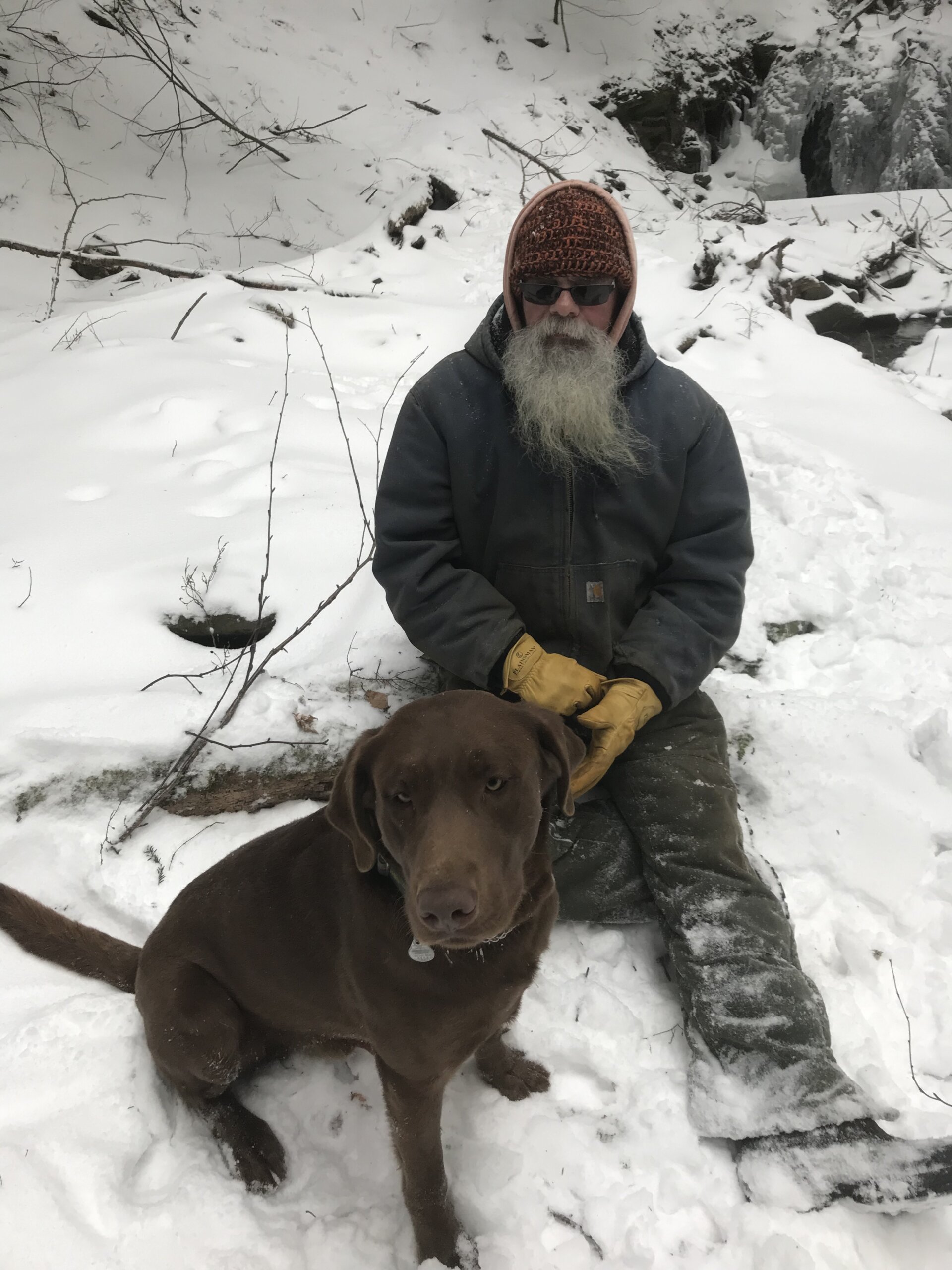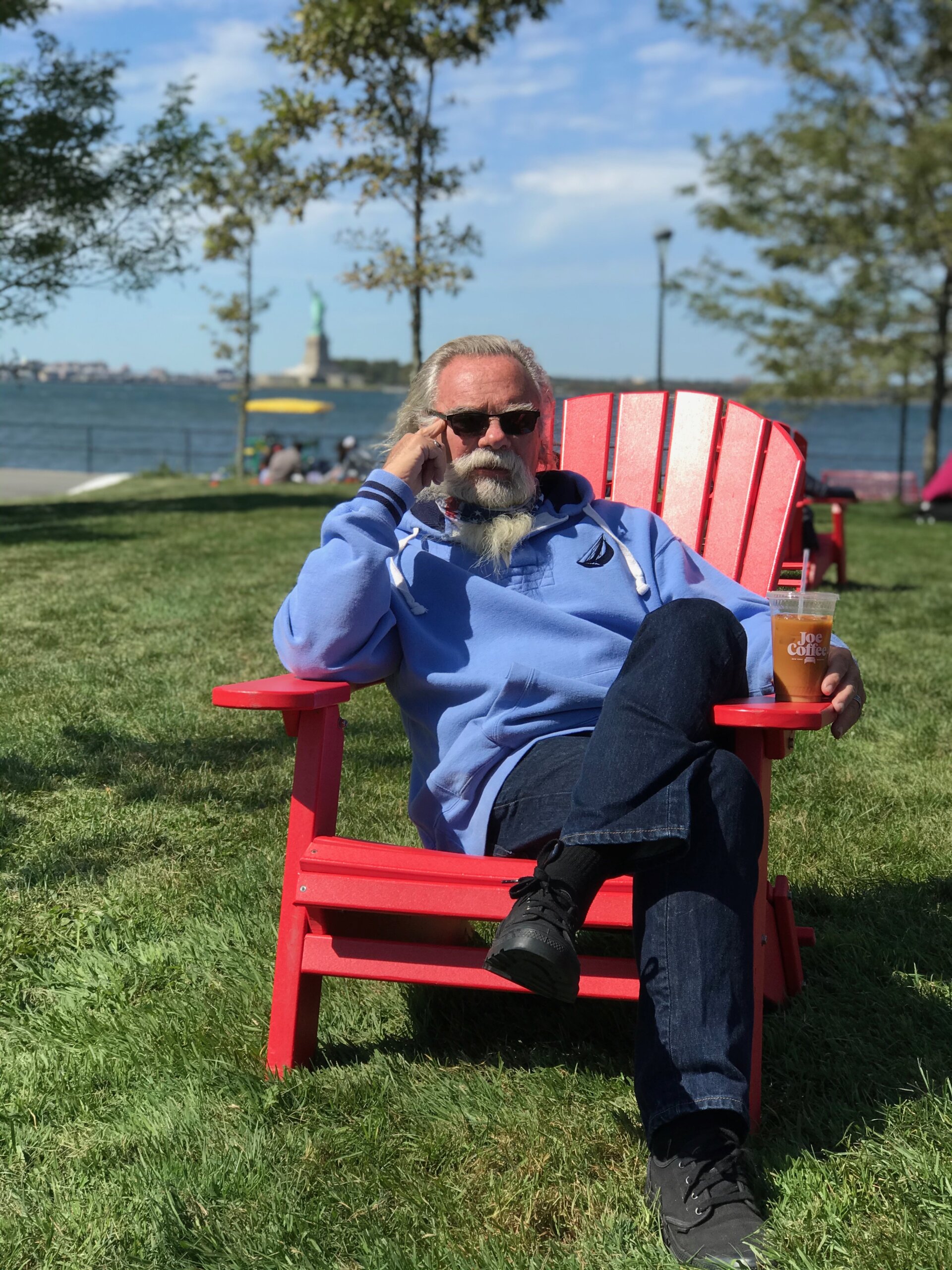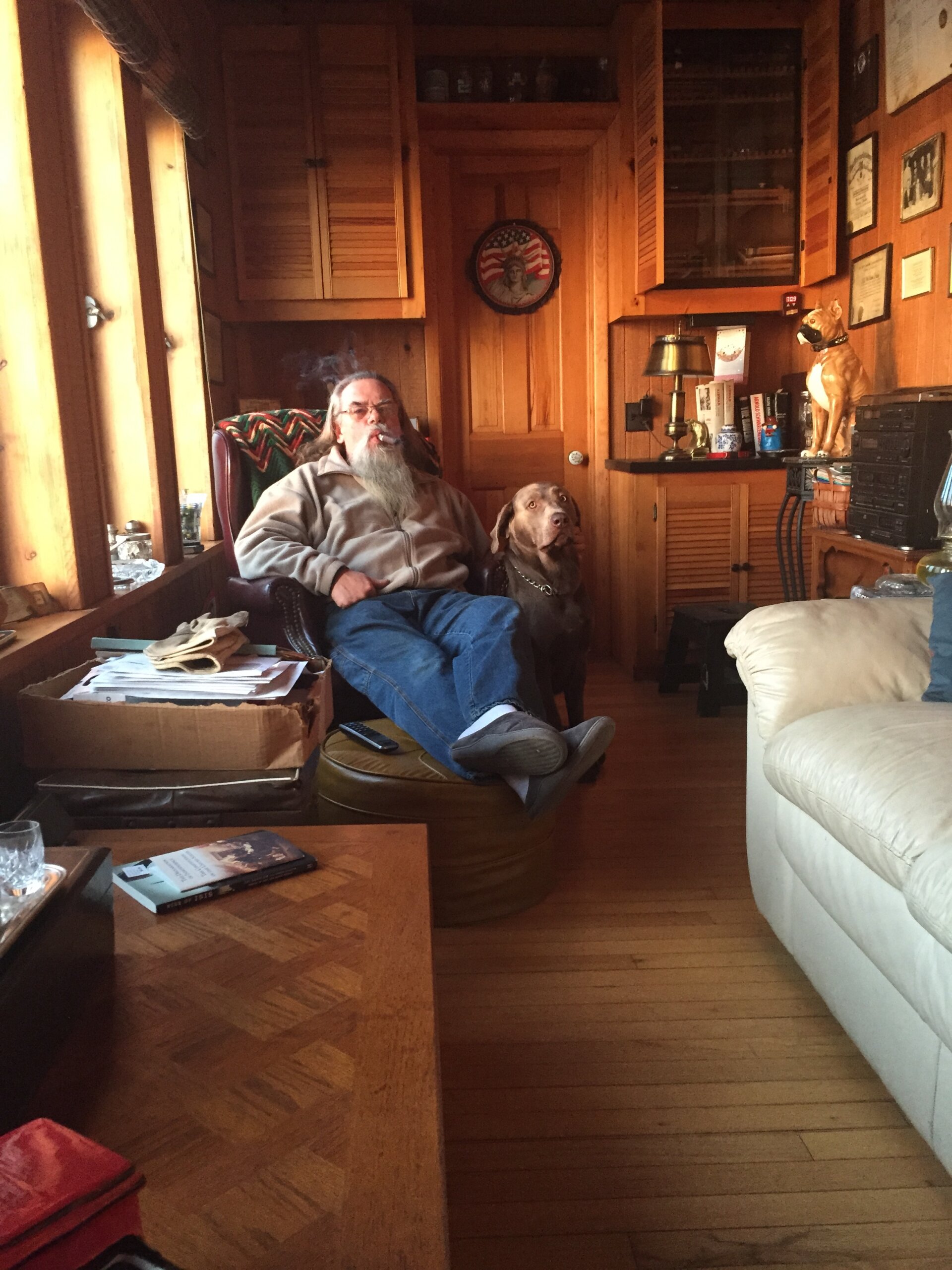Meet Bill. Bill Baker’s Brain Story includes a valiant and deeply impactful history of service for our United States Military, and after serving, a career with the NYPD as an undercover Anti-Crime Officer.
“My name is Bill Baker. I was born in 1950. I suffer from PTSD and have been in treatment since 2003. I joined the USAF in 1970 and was deployed to South East Asia from 1972-1973. I was part of an Air Force Special Operation unit. Detachment 1 of the 56th special operation wing. Our unit operated in Laos and Cambodia.”
His history is one that is rich with profound services to our country both overseas during the 1970s with the United States Air Force, and again, as he worked on cases with the New York Police Department that involved violent crimes at their very worst.
Bill’s Brain Story is one that embodies the trauma and emotional highs and lows that come with living with PTSD. PTSD, or, post traumatic stress disorder, is defined as “a condition of persistent mental and emotional stress occurring as a result of injury or severe psychological shock, typically involving disturbance of sleep and constant vivid recall of the experience, with dulled responses to others and to the outside world.” Roughly 8 million adults suffer from varying degrees of this life-altering disorder every year.

Bill Baker’s Journey – PTSD Diagnosis
We had the honor of speaking with Bill about his journey with PTSD; the ups, the downs, the joys, and even the heartache involved with a life altered by traumatic responses. Bill spoke candidly with us about his self-discoveries and the impact that PTSD has had on his life and loved ones. He began realizing he may be suffering from the disorder in 2003, when speaking with his son’s counselors due to his ongoing marital struggles.
Can you share how you were diagnosed?
“Our counselor at Catholic Charities pulled me aside after one session with my sons and mentioned that I may have something called PTSD and that he could recommend some places to go for additional information.
After that conversation, I began with Catholic Charities with that same counselor who was also a Vietnam Combat Veteran. This lasted for about 2 years, after which I was referred to the local Veteran’s PTSD Discussion Group in 2005. In 2010, our group counselor recommended that I look into the programs offered at the VA-Albany.
At the VA, a series of MD’s and PhDs evaluated me over a length of several months, after this time, the Director of the Mental Health Unit made a formal diagnosis of PTSD and established a percent compensation rate.
I began formal counseling at the VA-Albany in early 2010. As counseling progressed, my Disability Percentage was increased.”
The conversation surrounding PTSD throughout the 20th century meant many affected patients were left without answers, without support, and in many cases, medicated to impact symptoms without ongoing mental health resources. Bill observed, “During the 1970s, awareness of PTSD had limited reach; the disease was discussed to a limited extent in the news and on TV.” Bill voiced concerns that PTSD in veterans was ill-addressed through the VA at that time, with many of his fellow veterans receiving inadequate mental support during their treatments. “During the 1980s, public discussion was more frequent, and magazines like Psychology Today published articles on a regular basis. The general thought at this time was still “You’re a Vet, you don’t have PTSD, somebody else does.” Bill believes that the VA now does an excellent job of treating PTSD.

The discussion about post traumatic stress disorder has come a long way, but we still have work to do. PTSD is recognized in patients who have experienced a wide variety of physical and emotional traumas; it transcends all demographics of people and can impact those who have or may experience sudden or long term abuses or traumas throughout their lifetime. One in thirteen people will be affected by PTSD in their lifetime – an astounding and resonating statistic.

Living with PTSD – Reflecting on Hardship and Victory
After three failed marriages, losses that Bill states are in part due to his disorder, Bill reflected that his condition made it difficult to manage his temper. In some cases, arguments or situations resulted in regrettable violence. “I would socialize with my second wife in bars, men would ‘hit on her,’ and I would hit them in response,” Bill said. Bill also said that after returning from southeast Asia, he always harbored a feeling of emotional disconnect from “civilians.” But through decades of work with support groups and psychological professionals, Bill has come a long way.
For decades, Bill has sought out the support of counselors, support groups, and medical professionals that have assisted him in his journey to wellness.
What has helped you cope with your PTSD?
“Talking through the issues is the method that works best for me. The search for alternate solutions to whatever issue is currently presenting a problem is extremely useful. The use of analytical approaches to life’s issues is very helpful.
I also keep very busy. I am currently involved in dog breeding and am constantly surrounded by dogs which offer a calming environment. The dogs are a great source of emotional support. I am happily married to an understanding wife, who engages with me when I have issues to resolve.”
Ongoing treatment at the VA has been very beneficial; both the one-on-one counseling and the group meetings have been very helpful and are ongoing.
Bill shared with us a few thoughts and processes that have helped him come to terms with his diagnosis and that continue to help him grow and heal. He hopes that his story, and perhaps sharing methods and insight that have helped him while living with PTSD, may help others struggling with the disorder. Bill shared, “There are numerous approaches to treating PTSD. Some rely on counseling, others incorporate a pharmaceutical approach, and there are countless variations in between. The important thing is to be comfortable with your diagnosis of PTSD and to realize its impact on your life can be controlled and mitigated.”

Bill also feels that while PTSD is a broadly applied diagnosis, he finds great value in finding support from groups of individuals who have experienced similar traumatic experiences when seeking out collective groups and counseling. “Relatability is the key to successful interaction with a fellow PTSD sufferer,” he says. Through his long journey living with PTSD, Bill has implemented anger management and calming techniques to help him cope with his challenges. In addition, Bill has found great comfort in the therapeutic value of his dogs. Bill feels that it is now his time to “pay it forward” and help others with PTSD.
If you or someone you know is suffering from PTSD, or you believe you may be, please reach out. You can locate local veterans support groups related to your traumas through the V.A., and Psychology Today has an extensive support group network located on their website here. For a list of crisis hotlines, suicide prevention, and other mental health support resources, please click here.
At the United Brain Association, we strive to raise awareness for, and fund promising research to help find cures for brain disorders and diseases worldwide. For the latest updates, news, events and information on upcoming and ongoing research projects the United Brain Association is supporting, please sign up for our newsletter.

Make a Donation, Make a Difference
We have a close relationship with researchers working on an array of brain and mental health-related issues and disorders. We keep abreast with cutting-edge research projects and fund those with the greatest insight and promise. Please donate generously today; help make a difference for your loved ones, now and in their future.
The United Brain Association – No Mind Left Behind



